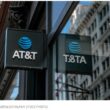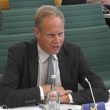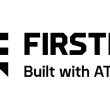FCC OKs LightSquared terrestrial-only devices plan
LightSquared’s vision of becoming a wholesale-only integrated wireless broadband and satellite network provider based on LTE technology is moving closer to reality, now that the Federal Communications Commission has approved a waiver that allows the company’s wholesale partners to offer either dual-mode or terrestrial-only devices.
Under current rules, satellite operators wanting to offer simultaneous satellite and terrestrial services, could not offer terrestrial-only devices. As such, the waiver was a critical move for LightSquared, because offering terrestrial-only devices is more appealing to its wholesale customers, since they are significantly cheaper and have sleeker form factors than dual-mode devices.
“The grant of this application is an essential building block for our network, so we could meet the commission’s timetable for deployment of the network,” noted Jeff Carlisle, LightSquared’s executive vice president for regulatory affairs.
Indeed, LightSquared’s rollout timeframe is ambitious because of the conditions of its deal to acquire SkyTerra back in July. The company must cover at least 100 million in population in the U.S. by the end of 2012, 145 million by the end of 2013 and 260 million by the end of 2015. The company, which is backed by at least $2.9 billion from hedge fund Harbinger Capital Partners, is conducting LTE trials in Baltimore, Denver, Las Vegas and Phoenix, with commercial launches planned by the third quarter of this year.
LightSquared inked a $7 billion contract with Nokia Siemens Networks in July to design and build the network, and signed agreements in October with Nokia, Qualcomm and other companies for devices. In addition to its waiver, LightSquared said it is now executing an agreement with satellite company Inmarsat that will give the private-equity backed company up to 59 MHz of terrestrial and L-Band ancillary terrestrial component (ATC) spectrum over the United States and Canada.
“We are pleased to report that LightSquared is experiencing very strong demand for capacity on its 4G-LTE wholesale network, and therefore we have decided to accelerate the triggering of Phase 2 of our agreement with Inmarsat,” said Sanjiv Ahuja, chairman and chief executive officer of LightSquared, in a statement.
The company has yet to announce any wholesale partners. In addition, LightSquared and the government have been grappling over potential GPS interference concerns posed by the network. LightSquared has pledged to work with the FCC to address interference concerns raised by the NTIA, which told the FCC that several federal agencies — including the Deprtment of Homeland Security — are concerned about LightSquared’s hybrid network would interfere with their communications services.
“Grant of the LightSquared waiver would create a new interference environment, and it is incumbent on the FCC to deal with the resulting interference issues before any interference occurs,” NTIA head Lawrence Strickling wrote to the FCC. “Several federal agencies with vital concerns about this spectrum band, including the Departments of Defense, Transportation and Homeland Security, have informed NTIA that they believe the FCC should defer action on the LightSquared waiver until these interference concerns are satisfactorily addressed.”
For more information on satellite’s use in communications, attend these sessions at IWCE in Las Vegas, March 7-11, 2011.

















